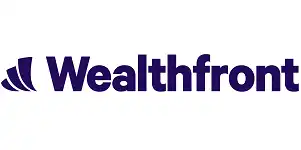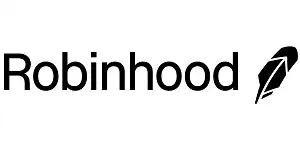If you want to get started investing but have no clue where to start, you’re not alone. One common question many beginner investors have is: what’s the difference between a robo-advisor and a discount broker?
While both types of firms allow you to invest money, they focus on very different things. Let’s explore the differences between robo-advisors and discount brokers, and then look at some recommendations of each.
What is a robo-advisor?
A robo-advisor is an investment firm that manages your money for you on your behalf. They typically help you with investment selection, rebalancing your portfolio on a regular basis and may even try to optimize your returns using methods such as tax harvesting.
These firms usually charge a management or monthly fee in addition to any underlying investment fees you’d normally be charged on your investments.
They’re perfect for beginners
Beginner investors may like that robo-advisors help deal with some of the complexities of investing that you may not tackle until a few years after you start investing. However, robo-advisors charge for these services that you may not benefit from very much in the first few years you invest.
Low fees
Even so, the fees associated with a robo-advisors charge vs financial advisors are typically much lower.
Low minimum investment requirements
Additionally, many robo-advisors have no or lower minimum investment requirements while financial advisors may have higher initial investment requirements that could scare off beginner investors or leave some out in the cold.
That said, robo-advisors could still charge more than what a brokerage firm would charge if you took care of the robo-advisor functions yourself and self-directed your own investments. Over time, the additional fees could add up to thousands of dollars when you consider the compounding returns you may miss out on.
When should you use a robo-advisor?
As you can see from above, robo-advisors are great for beginners, but they’re also great for those who want hands-off investing and/or those with little to invest. Robo-advisors typically have a lower minimum investment than big brokerage firms.
You should also use a robo-advisor if:
You understand and don’t mind paying fees
Again, as we said above, fees are a big concern when considering a robo-advisor. Those fees may be worth it for someone who understands the importance of investing, but doesn’t have the time to (or simply doesn’t want to) pay close attention to what they’re investing in.
That brings us to our next point.
You’re okay with someone else doing your investing
Robo-advisors offers great peace of mind, because they choose your investments based on what you tell them, and they automatically keep you diversified. This means less risk for you.
» MORE: Are robo-advisors worth it?
What is a broker?
A stock broker or brokerage is a platform for buying and selling individual stocks and funds. You deposit cash with a broker (or borrow money on margin) for the purpose of trading securities.
With a broker, you’re on your own as an investor
Brokers do not help you choose what to invest in based on your risk tolerance and won’t automatically rebalance your portfolio for you. Everything is completely up to you at a brokerage firm. They may provide some tools and features that make it easier on you, like watchlists and screeners, but you’re in charge.
With a traditional broker, you may be charged a fee to purchase or sell certain investments and be able to purchase and sell other investments for free. If you want to rebalance your portfolio or attempt tax harvesting, you’ll have to learn to do it yourself and request the necessary transactions to make it happen.
They typically have minimum investment requirements
Brokers may also have minimum investment requirements to invest in certain mutual funds or other investments. If you don’t have the minimum required amount, they usually offer other investments with a very low or no minimum investment requirement that you can use until you reach the higher minimums of the funds you want to invest in.
When should you use a broker?
A broker is best for the hands-on investor. You can choose the investments you want to make, including socially responsible investments. The broker is there simply to help you.
So, you should use a broker if:
You want to buy your own stocks and ETFs
If you’re a casual investor ready to make your own investments or a new investor learning how to invest eventually ready to jump in with some favorite stocks and ETFs, then going with a discount broker and directing your own trades may be for you.
You want to trade commission-free
It’s the norm nowadays to see trading platforms that do not charge commissions on stocks, ETFs and options on orders placed online (though contract fees on options can still pretty commonplace). If you’re interested in building a portfolio that tracks the market, say U.S. with VTI or VOO, or international added in with VT, then you can save on paying a robo-advisor and do it yourself.
In the end you only end up paying the expense fees on the ETFs that are traded commission-free, with less eating away on your long-term gains.
Recommended robo-advisors
Robo-advisors are still fairly new to the investing world. In fact, the first robo-advisors appeared in 2008. Seems like just yesterday. Here are some of the current more popular robo-advisors we recommend and some details on how they work.
Wealthfront
Wealthfront is a robo-advisor where you honestly don’t need to now a ton abut investing to put your money to work. Share your goals and risk-tolerance and Wealthfront can help design a portfolio for you starting with $500.
Wealthfront is designed for young professionals, anyone from passive investors who want expert digital guidance, to people who want to be smarter with money.
With low fees and multiple tax perks, automated investment management tuned in to your individual risk level make Wealthfront worth a look.
- Passive investing with automated management
- Tax-loss harvesting
- Ability to customize portfolios
- No fractional shares of ETFs in automated accounts
- No human advisors
The annual advisory fee with Wealthfront is 0.25%, so much less than you’d pay a financial advisor to tailor a portfolio for you. There’s added features in with that like Smart Beta, direct indexing, and advanced tax-loss harvesting, all of which are covered in our dedicated review linked below.
Ultimately Wealthfront may be the most complete robo-advisor service available today that we’ve looked at, and with a low annual fee, it’s also one of the best for anyone looking to go with a robo-advisor.
» MORE: Sign up for Wealthfront or read our full Wealthfront review.
Acorns
If you’re a beginner or consider yourself a casual investor who has problems sticking to investing or saving, then you may want to go with Acorns.
Acorns makes it easy to start investing (even if you know nothing) and provides helpful tools to help you save more automatically. In under 3 minutes, start investing spare change, saving for retirement, earning more, spending smarter, and more.
- Effortless automated investing
- Easy-to-use savings features
- Low-cost solution to manage money
- Flat monthly fee more expensive for smaller accounts
- Can use more robo-advisor features
Acorns is in-part a spare change investing app with a Round-Ups feature that rounds up linked credit card and debit card purchases, investing them in your pre-selected tailored portfolio once the amount accumulates to $5. It’s investing that matches up with your daily routine you don’t even have to think about. There’s also Smart Deposit, which takes a portion of your regularly-scheduled deposits (like your paycheck) and deposits them into your investment or retirement account with Acorns.
Acorns is a swiss-army knife option with more products under its umbrella that’s not intimidating for beginners or hard to understand, starting at $3/month.
» MORE: Open an account with Acorns or read our Acorns review.
Recommended brokers
While all brokers work in a similar way to help you buy and sell securities, each have slightly different features and “feel”. Some brokers, like Robinhood, are focused on making trading easy to learn for beginning investors. Others, like J.P. Morgan Self Directed Investing, make it possible for individual investors to take advantage of powerful investment tools and expanded offerings on a platform through a trusted large bank.
Robinhood
Robinhood was founded in 2013 and took the investment world by storm when it announced it’d offer commission-free trades on its platform. It’s why nowadays, typical brokerage accounts are synonymous with stock brokers — seeing wide-spread commissions has become a rarity.
Robinhood is a popular stock trading and investing app that offers zero-commission trades on thousands of investments, including stocks, starting with as little as $1.
With beginner-friendly features and easy-to-read charts, Robinhood is great for new investors and there's advanced features even more seasoned investors can appreciate.
- Commission-free trading
- Easy to use, well-displayed dashboard
- No obligation or minimum account balance
- No bonds or mutual funds
- Crypto fees can be more transparent
With no commissions, Robinhood is one of the best trading apps for new investors to begin trading stocks, crypto, ETFs, and even IPOs in some companies starting with as little as $1 on their own.
The Robinhood website has an in-depth section to help you learn about investing basics, the markets, and trading lingo. These resources can help you figure out how to get started investing. Not quite a robo-advisor, but there’s also tools to help you manage your portfolio, too.
» MORE: Open a Robinhood account or read our full Robinhood review.
J. P. Morgan Self-Directed Investing
J. P. Morgan Self-Directed Investing is trading platform within the Chase ecosystem that works well for existing Chase customers, but also inviting for new investors who want venture on with investment option associated with a major bank.
J.P. Morgan Self-Directed Investing offers Chase clients tremendous convenience and new investors an intuitive investing platform with unlimited commission-free online stock, ETF and options trades.
It's ideal for those who are interested in learning the market with no investment minimums attached.
- Exceptional customer support
- Simple, intuitive interface
- Easy integration for existing Chase customers
- Advanced traders may want additional functionality
- Portfolio Builder requires $2,500 min.
J.P. Morgan Self-Directed Investing provides unlimited commission-free online stock, ETF and options trades. Plus, there’s a number of powerful investment tools, multiple account options, and an offer for signing up.
You can’t trade fractional shares on J.P. Morgan Self-Directed Investing and you might find some international investment vehicles to be missing as an option (recommend Robinhood if this is of concern), but if you’re an existing Chase customer or want to trade online commission-free on a clean, easy-to-understand interface then SDI may be for you.
» MORE: Open a J.P. Morgan Self-Directed Investing account or read our full J.P. Morgan Self-Directed Investing review.
Summary
Now that you understand the difference between robo-advisors and brokers, you can decide which of the top investment accounts is right for you.
While some brokers offer robo-advisory services, not all do. On the other hand, robo-advisors typically don’t offer traditional brokerage features, though some may provide opportunity to pick individual stocks for a higher fee. Once you’ve made your decision, compare multiple robo-advisors and brokerages to find the one that’s best for you.



